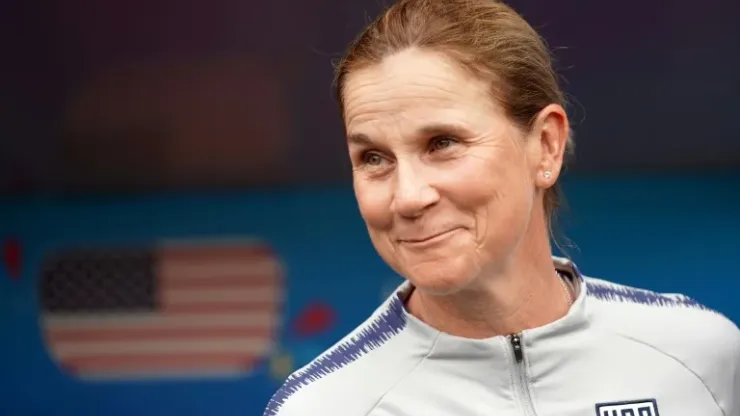Paris (AFP) – Holders the United States are the last ones standing in the way of a European winner at the women’s World Cup heading into the quarter-finals, as coach Jill Ellis and her team prepare for a heavyweight showdown with hosts France on Friday.
Italy and the Netherlands made it seven out of eight for Europe as they advanced on Tuesday, eliminating China and Japan respectively to end Asian ambitions in the process. The last African and South American teams had already bowed out.
There had never previously been more than five European teams in the last eight at the tournament since its inauguration in 1991, and the absence of the likes of Japan — 2011 winners and runners-up four years ago — and Brazil from the latter stages is not to everyone’s liking.
“As a football fan, to me I would want a little bit more diversity at this point. I find European football sometimes a little boring,” said US star Tobin Heath, who once had a spell at Paris Saint-Germain.
“These tournaments you can’t really predict. You’ve seen these games, they have been so close,” said Heath, whose team required a debatable penalty to beat Spain in the last 16.
Japan lost 2-1 to the Netherlands with Lieke Martens converting a 90th-minute penalty winner awarded for a Saki Kumagai handball.
Canada and Brazil suffered narrow losses to Sweden and France respectively, while Australia lost on penalties to Norway.
Ahead of Friday’s match in Paris, the USA remain the favourites to go all the way. The traditional stronghold of the women’s game, they have never finished off the podium at the women’s World Cup.
– Upping the bar –
The last European nation to win the World Cup was Germany, in 2007. But while the Germans are an established force internationally, the rise of the Netherlands and Italy has put the spotlight on the work being done to grow the game at club level on the continent.
“European countries are developing very much and quickly. In Europe you see the competitions improve in several countries. You see players can make choices because they make a living out of football,” said Netherlands coach Sarina Wiegman, whose team are in the World Cup quarter-finals for the first time as well as being reigning European champions.
Italy’s first run to the quarter-finals in almost three decades follows significant investment in the domestic game, with the Italian Football Federation obliging established professional clubs to field a women’s section.
Five of Italy’s starting line-up against China play for Juventus, the national champions.
“I think it’s been crying out for exactly what has happened to be fair,” said England goalkeeper Karen Bardsley, who was born in California.
Bardsley, who plays for Manchester City, says the increased investment by European clubs has been crucial in raising the level of competition, as has the standard of the Champions League, which has been dominated by French giants Lyon.
“It has upped the bar. The investment in those leagues, those players, those federations has absolutely paid off and it’s my opinion that they need to continue because it’s only going to up the bar again for the rest of the world.
“I think we are in a great place in terms of European football,” she added ahead of England’s last-16 tie against Norway.
Of the nine European nations involved at the competition’s outset, only Scotland failed to make it past the group stage.
Such success has its downside, though, with Germany coach Martina Voss-Tecklenburg admitting she fears for her side’s place in the 2020 Olympics.
Only the three best European teams at the World Cup earn qualification for next year’s Games in Tokyo, meaning there is now even more at stake than usual in the latter stages of the tournament.
“It would be really important for this team to get to the Olympics,” she said.
“Tokyo will be very important for everything that we have before us in the next four or five years.”
200+ Channels With Sports & News
- Starting price: $33/mo. for fubo Latino Package
- Watch Premier League, Women’s World Cup, Euro 2024 & Gold Cup
The New Home of MLS
- Price: $14.99/mo. for MLS Season Pass
- Watch every MLS game including playoffs & Leagues Cup
Many Sports & ESPN Originals
- Price: $10.99/mo. (or get ESPN+, Hulu & Disney+ for $14.99/mo.)
- Features Bundesliga, LaLiga, Championship, & FA Cup
2,000+ soccer games per year
- Price: $5.99/mo
- Features Champions League, Serie A, Europa League & Brasileirāo
175 Premier League Games & PL TV
- Starting price: $5.99/mo. for Peacock Premium
- Watch 175 exclusive EPL games per season






